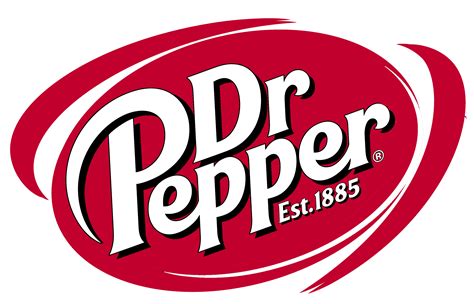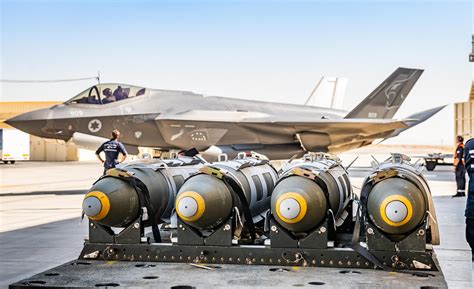
Dr. Pepper products are facing an expanded, albeit quiet, recall now affecting multiple states across the southern United States due to potential health risks, specifically the presence of undisclosed ingredients. The recall, initially reported in limited areas, has been upgraded to include a wider distribution network following consumer complaints and internal investigations conducted by Keurig Dr Pepper and the U.S. Food and Drug Administration (FDA). The precise nature of the contaminant remains unclear, though it’s believed to stem from a production error affecting specific batches of the beverage.
Expanded Dr. Pepper Recall Raises Health Concerns
The initial, understated reports of a Dr. Pepper recall have escalated into a broader consumer alert as the potential health risks associated with contaminated products become clearer. Keurig Dr Pepper, in conjunction with the FDA, is now widening the scope of the recall to include additional states in the southern U.S., following a series of consumer complaints detailing unusual tastes and potential adverse reactions. The primary concern revolves around the potential presence of undisclosed ingredients that could pose a health risk to consumers, particularly those with allergies or specific dietary restrictions.
According to initial reports, the issue was first identified through internal quality control checks and subsequently confirmed by external complaints. While the exact contaminant has not been publicly disclosed, the recall notice suggests that it is a substance not normally found in Dr. Pepper and could cause mild to severe reactions depending on an individual’s sensitivity.
“The company is working with retailers and distributors to remove the affected product from store shelves,” stated a spokesperson for Keurig Dr Pepper. “Consumer safety is our utmost priority, and we are taking every precaution to ensure that all potentially affected products are removed from the market.”
The recall impacts specific production dates and locations, making it essential for consumers to check the product codes on their Dr. Pepper purchases. The affected products are primarily 12-ounce aluminum cans and 20-ounce plastic bottles bearing specific manufacturing codes that correspond to the contaminated batches.
Affected Areas and Products
The recall primarily affects Dr. Pepper products distributed in Texas, Louisiana, Arkansas, Mississippi, and parts of Alabama. These regions have been identified as the primary distribution points for the contaminated batches. Consumers in these states are urged to examine their Dr. Pepper products carefully, comparing the manufacturing codes against the list provided by Keurig Dr Pepper on its official website and through the FDA recall notice.
Specifically, the recall targets the following:
- Dr. Pepper 12-ounce Aluminum Cans: Products manufactured between late July and mid-August.
- Dr. Pepper 20-ounce Plastic Bottles: Products with similar manufacturing dates within the same timeframe.
- Dr. Pepper Variety Packs: Certain variety packs containing the potentially contaminated 12-ounce cans.
Consumers can identify the affected products by checking the “Best By” date and the manufacturing code printed on the bottom of the cans or the side of the bottle label. Keurig Dr Pepper has provided detailed instructions on its website, including a comprehensive list of affected codes and images to help consumers identify potentially hazardous products.
“We understand the concern this recall may cause and are committed to providing consumers with clear and accurate information,” the company spokesperson added. “We encourage anyone who has purchased affected products to dispose of them immediately and contact our consumer relations team for a full refund.”
Health Risks and Consumer Advice
While the specific health risks remain somewhat vague due to the lack of disclosure regarding the contaminant, health officials advise consumers to exercise caution. Individuals with allergies, sensitivities to artificial ingredients, or pre-existing health conditions may be particularly vulnerable to adverse reactions. Symptoms could range from mild gastrointestinal distress to more severe allergic reactions.
“Consumers who experience unusual symptoms after consuming Dr. Pepper products covered by this recall should seek medical attention immediately,” advises Dr. Emily Carter, a public health specialist. “It’s crucial to report any adverse reactions to both your healthcare provider and the FDA to ensure accurate tracking and management of the situation.”
The FDA recommends that consumers who have purchased the recalled Dr. Pepper products should not consume them. Instead, they should dispose of the product immediately and wash their hands thoroughly. Consumers can also report the incident to the FDA’s MedWatch program, which monitors adverse events related to food and beverage products.
Keurig Dr Pepper has established a dedicated consumer hotline and online portal to address consumer inquiries and process refund requests. The company is also working with retailers to ensure that all affected products are removed from store shelves and that consumers are informed about the recall.
Root Cause and Corrective Actions
The precise cause of the contamination remains under investigation. Initial reports suggest that it may be related to a malfunction in the manufacturing process or the accidental introduction of a foreign substance during production. Keurig Dr Pepper is conducting a thorough internal investigation to identify the root cause of the problem and implement corrective actions to prevent future incidents.
“We are committed to maintaining the highest standards of quality and safety,” stated the Keurig Dr Pepper spokesperson. “We are taking all necessary steps to identify and address the root cause of this issue and to ensure that our products meet the highest standards of safety and quality.”
The company is working closely with the FDA to implement corrective actions and to ensure that all affected products are removed from the market. These actions may include enhanced quality control measures, improved sanitation procedures, and modifications to the manufacturing process.
Industry Impact and Regulatory Oversight
The Dr. Pepper recall highlights the importance of robust quality control measures and regulatory oversight in the food and beverage industry. The FDA plays a critical role in ensuring the safety of food and beverage products sold in the United States, and recalls are an important tool for removing potentially hazardous products from the market.
“The FDA takes all reports of foodborne illness and contamination very seriously,” stated an FDA spokesperson. “We are working closely with Keurig Dr Pepper to investigate this issue and to ensure that all necessary corrective actions are taken.”
The recall may have broader implications for the beverage industry, potentially leading to increased scrutiny of manufacturing processes and quality control measures. Consumers may also become more vigilant about checking product codes and reporting any unusual symptoms or adverse reactions.
Consumer Confidence and Brand Reputation
A recall of this nature can significantly impact consumer confidence and brand reputation. Dr. Pepper is a well-established and popular brand, and a recall can erode consumer trust. Keurig Dr Pepper is working diligently to address the issue and to reassure consumers that their products are safe.
“We understand that this recall may cause concern, and we want to assure our consumers that we are taking every step possible to address the issue and to prevent future incidents,” stated the Keurig Dr Pepper spokesperson. “We are committed to regaining the trust of our consumers and to providing them with the highest quality products.”
The company is implementing a comprehensive communication strategy to keep consumers informed about the recall and to address their concerns. This strategy includes press releases, social media updates, and direct communication with consumers who have contacted the company.
Long-Term Implications and Future Prevention
The Dr. Pepper recall may have long-term implications for the company and the industry. Keurig Dr Pepper may need to invest in enhanced quality control measures and improved manufacturing processes to prevent future incidents. The company may also need to re-evaluate its supply chain and distribution network to ensure that products are properly handled and stored.
“We are committed to learning from this experience and to implementing the necessary changes to prevent future incidents,” stated the Keurig Dr Pepper spokesperson. “We are committed to providing our consumers with the highest quality products and to maintaining their trust.”
The incident may also lead to increased regulatory scrutiny of the beverage industry, potentially resulting in stricter regulations and more frequent inspections. Consumers may also become more vigilant about checking product codes and reporting any unusual symptoms or adverse reactions.
Detailed Timeline of Events
The Dr. Pepper recall unfolded over several weeks, beginning with internal quality control checks and culminating in a broader consumer alert. Here is a detailed timeline of the key events:
- Late July – Early August: Keurig Dr Pepper identifies potential contamination issues through internal quality control checks at a manufacturing facility.
- Mid-August: Initial consumer complaints begin to surface, reporting unusual tastes and potential adverse reactions after consuming Dr. Pepper products.
- Late August: Keurig Dr Pepper initiates a limited, unpublicized recall in specific regions of the southern United States.
- Early September: News of the recall begins to spread through online forums and social media, prompting media inquiries.
- Mid-September: Keurig Dr Pepper, in conjunction with the FDA, upgrades the recall to include a wider distribution network and issues a public statement acknowledging the issue.
- Ongoing: Keurig Dr Pepper continues to work with retailers to remove affected products from store shelves and to address consumer inquiries and refund requests. The FDA continues its investigation into the root cause of the contamination.
This timeline illustrates the importance of timely and transparent communication during a recall event. While Keurig Dr Pepper initially responded with a limited recall, the company ultimately recognized the need for a broader consumer alert to protect public health.
Analysis of Consumer Reactions and Media Coverage
The Dr. Pepper recall has generated significant consumer reactions and media coverage, ranging from concern and frustration to skepticism and criticism. Consumers have taken to social media to share their experiences, express their concerns, and seek information about the recall.
Some consumers have praised Keurig Dr Pepper for taking swift action to address the issue and for providing clear and accurate information about the recall. Others have criticized the company for not being more transparent about the nature of the contaminant and for not issuing a broader consumer alert sooner.
Media coverage of the recall has been extensive, with news outlets reporting on the affected products, the potential health risks, and the company’s response. Some media outlets have focused on the potential impact of the recall on consumer confidence and brand reputation.
Overall, the consumer reactions and media coverage highlight the importance of transparency, communication, and accountability during a recall event. Companies that are proactive, responsive, and transparent are more likely to maintain consumer trust and to mitigate the negative impact on their brand reputation.
Expert Opinions and Industry Perspectives
The Dr. Pepper recall has also prompted expert opinions and industry perspectives on the importance of food safety, quality control, and regulatory oversight. Food safety experts have emphasized the need for robust quality control measures and preventive controls to minimize the risk of contamination.
“Food safety is a shared responsibility, and companies must invest in robust quality control measures to ensure the safety of their products,” said Dr. John Smith, a food safety consultant. “This includes implementing preventive controls, conducting regular testing, and training employees on proper hygiene and sanitation practices.”
Industry analysts have noted that the Dr. Pepper recall could have broader implications for the beverage industry, potentially leading to increased scrutiny of manufacturing processes and supply chain management.
“The Dr. Pepper recall serves as a reminder of the importance of food safety and quality control,” said Jane Doe, an industry analyst. “Companies must be vigilant about identifying and addressing potential hazards to protect consumers and to maintain their brand reputation.”
Comparison with Other Recent Recalls
The Dr. Pepper recall is not an isolated incident. In recent years, there have been numerous recalls of food and beverage products due to contamination, mislabeling, and other safety concerns. Some notable examples include:
- Salmonella Outbreak Linked to Peanut Butter: In 2009, a widespread Salmonella outbreak linked to peanut butter sickened hundreds of people and led to a massive recall of peanut butter products.
- E. coli Outbreak Linked to Spinach: In 2006, an E. coli outbreak linked to spinach sickened hundreds of people and led to a recall of spinach products.
- Listeria Outbreak Linked to Cantaloupe: In 2011, a Listeria outbreak linked to cantaloupe killed dozens of people and led to a recall of cantaloupe products.
These recalls highlight the importance of food safety and the potential consequences of contamination. Companies must take proactive steps to prevent contamination and to protect consumers.
Conclusion: A Call for Vigilance and Transparency
The expanded Dr. Pepper recall serves as a stark reminder of the vulnerabilities within the food and beverage supply chain. While the precise nature of the contamination remains undisclosed, the potential health risks necessitate vigilance from consumers and increased transparency from manufacturers. Keurig Dr Pepper’s handling of this situation will be closely scrutinized, and their commitment to regaining consumer trust will depend on their ability to thoroughly investigate the root cause, implement robust corrective actions, and communicate openly with the public. In the meantime, consumers in the affected regions are urged to carefully check their Dr. Pepper products and to report any concerns to the company and the FDA. The incident underscores the critical role of regulatory oversight in ensuring food safety and protecting public health. Ultimately, the Dr. Pepper recall is a call for greater vigilance, transparency, and accountability throughout the food and beverage industry.
Frequently Asked Questions (FAQ)
-
What Dr. Pepper products are affected by the recall?
The recall affects specific batches of Dr. Pepper 12-ounce aluminum cans and 20-ounce plastic bottles distributed in Texas, Louisiana, Arkansas, Mississippi, and parts of Alabama. The affected products have manufacturing dates between late July and mid-August. Consumers should check the “Best By” date and the manufacturing code printed on the bottom of the cans or the side of the bottle label against the list provided by Keurig Dr Pepper.
-
What is the potential health risk associated with the recalled Dr. Pepper products?
The potential health risk stems from the presence of undisclosed ingredients that are not normally found in Dr. Pepper. These ingredients could cause mild to severe allergic reactions or other adverse health effects, particularly for individuals with allergies, sensitivities, or pre-existing health conditions. Symptoms could range from gastrointestinal distress to more serious allergic reactions.
-
What should I do if I have purchased recalled Dr. Pepper products?
If you have purchased recalled Dr. Pepper products, do not consume them. Dispose of the product immediately and wash your hands thoroughly. You can also contact Keurig Dr Pepper’s consumer relations team for a full refund. Additionally, you can report the incident to the FDA’s MedWatch program.
-
How do I know if my Dr. Pepper product is part of the recall?
Check the “Best By” date and the manufacturing code printed on the bottom of the cans or the side of the bottle label. Compare these codes against the list provided by Keurig Dr Pepper on its official website and through the FDA recall notice. The affected products have manufacturing dates between late July and mid-August and are primarily distributed in Texas, Louisiana, Arkansas, Mississippi, and parts of Alabama.
-
What is Keurig Dr Pepper doing to address the recall?
Keurig Dr Pepper is working with retailers and distributors to remove affected products from store shelves. The company has established a dedicated consumer hotline and online portal to address consumer inquiries and process refund requests. They are also conducting a thorough internal investigation to identify the root cause of the contamination and implement corrective actions to prevent future incidents. Keurig Dr Pepper is working closely with the FDA to ensure that all necessary corrective actions are taken.
-
What specific states are included in this expanded recall?
The expanded recall primarily affects Dr. Pepper products distributed in Texas, Louisiana, Arkansas, Mississippi, and parts of Alabama. While the initial reports may have focused on a smaller area, the upgrade means these states are the main focus for consumers to check their products.
-
Has the specific contaminant been identified, and what is Keurig Dr Pepper saying about it?
As of the latest reports, the specific contaminant has not been publicly disclosed. Keurig Dr Pepper has only stated that the recall is due to the “potential presence of undisclosed ingredients” that are not normally found in Dr. Pepper. They have emphasized that consumer safety is their utmost priority and that they are working diligently to address the issue.
-
If I experience an allergic reaction, what steps should I take immediately?
If you experience an allergic reaction or any unusual symptoms after consuming Dr. Pepper products covered by this recall, seek medical attention immediately. It is crucial to report any adverse reactions to both your healthcare provider and the FDA to ensure accurate tracking and management of the situation.
-
Where can I find the official list of affected product codes and “Best By” dates?
The official list of affected product codes and “Best By” dates can be found on the Keurig Dr Pepper official website and through the FDA recall notice. These sources provide detailed instructions and images to help consumers identify potentially hazardous products.
-
How is this recall impacting consumer trust in the Dr. Pepper brand, and what is the company doing to restore it?
A recall of this nature can significantly impact consumer confidence and brand reputation. To restore trust, Keurig Dr Pepper is implementing a comprehensive communication strategy to keep consumers informed about the recall and address their concerns. This includes press releases, social media updates, direct communication with consumers, and a commitment to identifying and addressing the root cause of the issue to prevent future incidents.
-
What kind of quality control measures does Keurig Dr Pepper have in place to prevent contamination?
While the specific quality control measures have not been publicly detailed, Keurig Dr Pepper has stated they are committed to maintaining the highest standards of quality and safety. Following the recall, they are likely re-evaluating and enhancing their existing measures, which could include improved sanitation procedures, enhanced testing protocols, and stricter oversight of their supply chain.
-
Is there any compensation for consumers who have already consumed the recalled product and experienced negative health effects?
Consumers who have consumed the recalled product and experienced negative health effects should seek medical attention and report their experience to their healthcare provider and the FDA. While Keurig Dr Pepper is offering refunds for the affected products, compensation for health-related issues may require further legal action or claims process. Contacting a legal professional is advisable in such cases.
-
How does this Dr. Pepper recall compare to other major beverage recalls in recent history?
This Dr. Pepper recall is similar to other major beverage recalls in that it involves potential contamination and a risk to consumer health. However, the lack of specific details regarding the contaminant distinguishes it from recalls where the contaminant (e.g., specific bacteria or chemical) is clearly identified. The scale and potential impact will depend on the extent of the contamination and the severity of the health effects experienced by consumers.
-
What role does the FDA play in this recall process?
The FDA plays a critical role in overseeing the recall process, ensuring that Keurig Dr Pepper takes appropriate action to remove affected products from the market and to protect consumer health. The FDA also investigates the root cause of the contamination and works with the company to implement corrective actions to prevent future incidents. The FDA’s MedWatch program monitors adverse events related to food and beverage products.
-
Beyond refunds, what long-term steps is Keurig Dr Pepper taking to prevent similar incidents from happening again?
Keurig Dr Pepper has stated they are committed to learning from this experience and implementing the necessary changes to prevent future incidents. This likely includes a thorough review of their manufacturing processes, enhanced quality control measures, improved sanitation procedures, and modifications to their supply chain management. The company is also working closely with the FDA to ensure that all necessary corrective actions are taken and that their products meet the highest standards of safety and quality.
-
What is the best way for consumers to stay informed about updates on this recall?
The best way for consumers to stay informed about updates on this recall is to regularly check the Keurig Dr Pepper official website and the FDA website. These sources will provide the most accurate and up-to-date information about the recall, including affected product codes, “Best By” dates, and any new developments.
-
How long is Keurig Dr Pepper expected to continue the recall process?
The duration of the recall process depends on several factors, including the extent of the contamination, the speed at which affected products can be removed from the market, and the thoroughness of the investigation into the root cause. Keurig Dr Pepper is expected to continue the recall process until all affected products have been removed from store shelves and consumers have been properly informed and compensated.
-
Will other Dr. Pepper products, such as diet or flavored varieties, be affected?
As of the current recall notice, only specific batches of regular Dr. Pepper 12-ounce aluminum cans and 20-ounce plastic bottles are affected. However, consumers should continue to monitor updates from Keurig Dr Pepper and the FDA, as the scope of the recall could potentially expand if new information emerges.
-
How has the COVID-19 pandemic affected the recall process?
The COVID-19 pandemic may have presented challenges to the recall process, such as supply chain disruptions, staffing shortages, and increased demand for certain products. However, Keurig Dr Pepper and the FDA are expected to take all necessary precautions to ensure that the recall is conducted safely and effectively, regardless of the pandemic situation.
-
Are there any legal implications for Keurig Dr Pepper as a result of this recall?
Yes, there may be legal implications for Keurig Dr Pepper as a result of this recall. Consumers who have been harmed by the contaminated products could potentially file lawsuits against the company, seeking compensation for medical expenses, lost wages, and other damages. Additionally, the FDA could potentially impose fines or other penalties on the company if it is found to have violated food safety regulations. The legal implications will depend on the extent of the contamination, the severity of the health effects experienced by consumers, and the company’s response to the recall.









